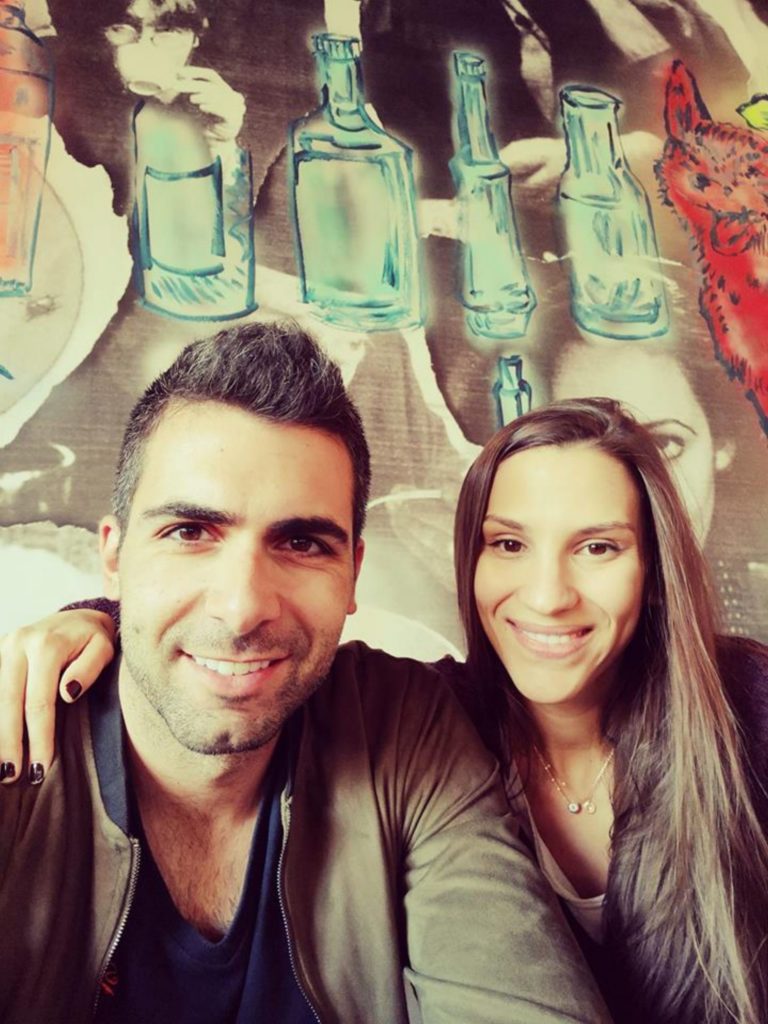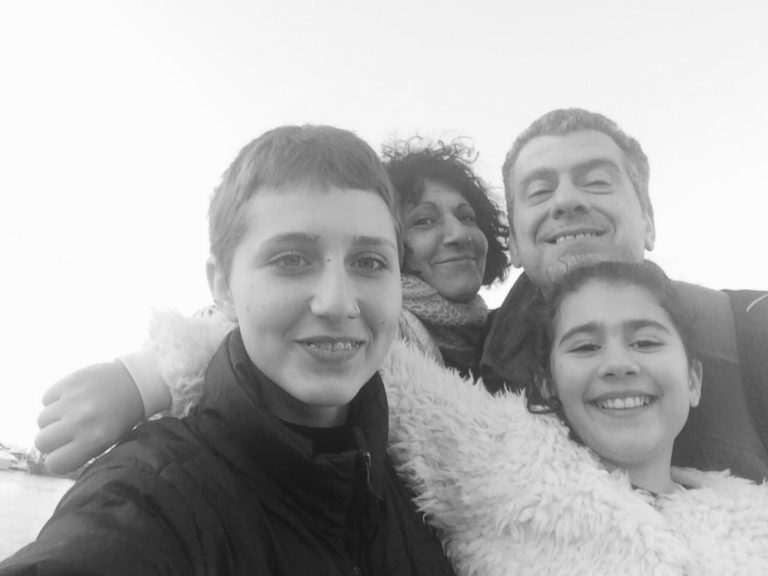As Greece prepares to exit its current bailout program, following eight years of austerity measures that have taken an unprecedented toll on its people, the government seems to believe the worst days of the country’s economic crisis are coming to an end.
Amidst ongoing discussions with the country’s creditors to save a torn economy, Prime Minister Alexis Tsipras has urged Greek migrants to return and contribute to the recovery of their homeland.
For those who fled the country during the years of the crisis, however, the decision is not easy.
After all, this would equate to building a life from scratch once again.
Petros Gyftopoulos and his wife Myrto Levidi, both in their 30s, are part of the ‘brain drain’ generation.
The couple made the decision to migrate to Australia in 2013, after considering other possible destinations such as Canada and the US.
“It just happened that it was easier to get a visa for Australia, as there was a demand for skilled professionals in my field.
“For a long time I was looking to find a job in my field, I graduated as a chemical engineer and specialised in the energy sector, however this was proving impossible,” Petros tells Neos Kosmos.
Before they left, the 33-year-old was employed by a Greek TV show, a job which, while desirable for many was not his first choice. Myrto, a qualified psychologist, was working as a flight attendant, due to the lack of openings in her field.
“If it weren’t for the economic crisis, we wouldn’t be making the decision to leave. It’s not that we were struggling to get by, rather we were urged to leave in search of better prospects for our careers and a better quality of life.
“Despite the initial period which was definitely hard, especially given we did not know anybody here, things soon became smoother and we managed to find the standard of living we were looking for, along with a satisfactory work-life balance,” he explains.
Asked to comment the prospect of a recovery for the Greek economy, Petros is hesitant.
“Personally, I don’t think the end of the bailout equates to an economic recovery. The situation could become better after five years or more.
“The European Union is already in a really week position, and this will deteriorate even more with Italy being under financial stress possibly leading to a bailout.
“I’m not optimistic about it, even though I would like to be. If things were to improve slightly, I would attempt going back,” he adds, clarifying that this would only happen if an opportunity came up for stable work that would pay well.
Being the administrator of the Facebook group ‘ENA’, a networking platform for newly-arrived Greek migrants counting almost 2,000 members, Petros gives us an insight into discussions taking place among this larger constituency.
“I am in touch with many people on a daily basis and my estimate is that around half of them we know through the group would choose to go back. But this is not the case for the rest of those who have settled here, being happy with their standard of living, and disappointed with the situation in Greece.
“I feel nostalgic about Greece, because for me home is made up of the memories you have with your loved ones in the place you grew up. But I can tell you for sure, the Greek state is surely something I don’t miss.”

Not every story of migration is the same though.
For Kostas Andriotis, the decision to leave Greece was primarily personal, citing a desire to explore and learn more about different places out of his comfort zone.
“I wanted to leave either way, the economic crisis was probably an extra incentive, he points out admitting however that a sense of disappointment and pessimism regarding the future was prevalent in the society at that time.
“It still feels the situation is worsening, but I am of the opinion that there might still be some future for younger generations especially in the tourism sector.”
Born in Australia, and raised in Athens, Kostas only came back as a 26-year-old in 2012, a decision he has not regretted since.
Our chat with Kostas takes place in a Melbourne inner city park, one of the city’s amenities he values the most.
“Coming here, I found a place that has an abundance of nature and public spaces, something which was no doubt missing from the suburbs of Philadelpia and Moshato where I’ve lived before,” he says adding that a main factor contributing to a satisfactory standard of living for Australians is the economic prosperity of the country and the welfare state.
Kostas did various jobs while in Greece, from catering and hospitality to sales and was even lucky enough to conduct paid university research as a dietetics student, thanks to a European Union grant.
Equally diverse has been his professional and educational trajectory since coming to Melbourne. He works at CERES community environment park, has completed postgraduate studies in biotechnology and massage therapy, and is currently doing courses related to environmental management.
And while he is satisfied with the life he is leading here, he does not reject the possibility of going back to Greece.
“Maybe yes, but [in] reality there are factors that would urge me to stay put, for instance I have two nephews here now and some other family members as well.”
He also appears willing to contribute to Greece’s recovery by giving back and sharing knowledge and experiences he has acquired here and elsewhere on his travels.
“I am positive that I will go back to Greece at some point even if [the] Greek economy doesn’t rebound. My plan would probably be to buy some land for permaculture farming, and host seminars for people who are interested in learning more about permaculture and other activities I’m currently engaged in, like mushroom growing and landscape design.”
For Kiki Fotiadou, who migrated to Australia with her family in 2013, the problems that drove people away in the first place from Greece still remain.
“Honestly, I don’t think this will come to an end soon, if not ever. It’s a vicious cycle, we see it happening all over Europe, not just Greece.
“I believe the approach followed with the bailouts and austerity measures has not contributed to rectifying things, [and is] keeping the country back, in fact it’s made them worse,” she says referring to issues like corruption or bureaucracy.
Kiki’s story is also typical of many Greeks.
Born in a small town near Sydney, Kiki moved to Greece with her parents when she was two months old, and only came back five years ago with husband Yiorgos and their two daughters, Elena, now 17 years old, and Dimitra, 11.
“I’ve always had this dream to go back and live in the country I was born. The economic crisis prompted me to realise this. But above all, we did it for the kids’ sake.”
Kiki and her husband were the owners of a printing business in Thessaloniki, a city defined by its student population.
“We both had jobs so it wasn’t a matter of us being unemployed or anything. But I would come across young people, students at the shop, on a daily basis, and the overwhelming majority of them would say their plan was to go abroad and try finding a job there. I started thinking that if my kids are going to end up doing the same, we might as well migrate all together as a family.
“We knew that they would have a better future here [in Australia] at least in terms of job prospects. Not that things are rosy here, but, compared to Greece, it is definitely more likely for graduates to land a job,” she says.
“Look, Australia is of course a capitalist country with everything this political economy system implies, yet it follows social welfare policies as well, something missing from Greece. This facilitates access to more opportunities,” she says, further explaining that the whole family has benefited.

Kiki has just started pursuing a career change, taking up a naturopathy course, something she is adamant would not have been an option available to her back in Greece, where making ends meet is the foremost priority.
Meanwhile, she adds that even if things were to change in the country, they wouldn’t think of going back, at least for now.
“We’ve built a life here all these years. Of course, I do miss Greece, my family, friends and this sense of solidarity existing among people. But at the same time, I know that the concept of home is not bounded with a specific country. When you are surrounded by people you love, home can be anywhere.”









